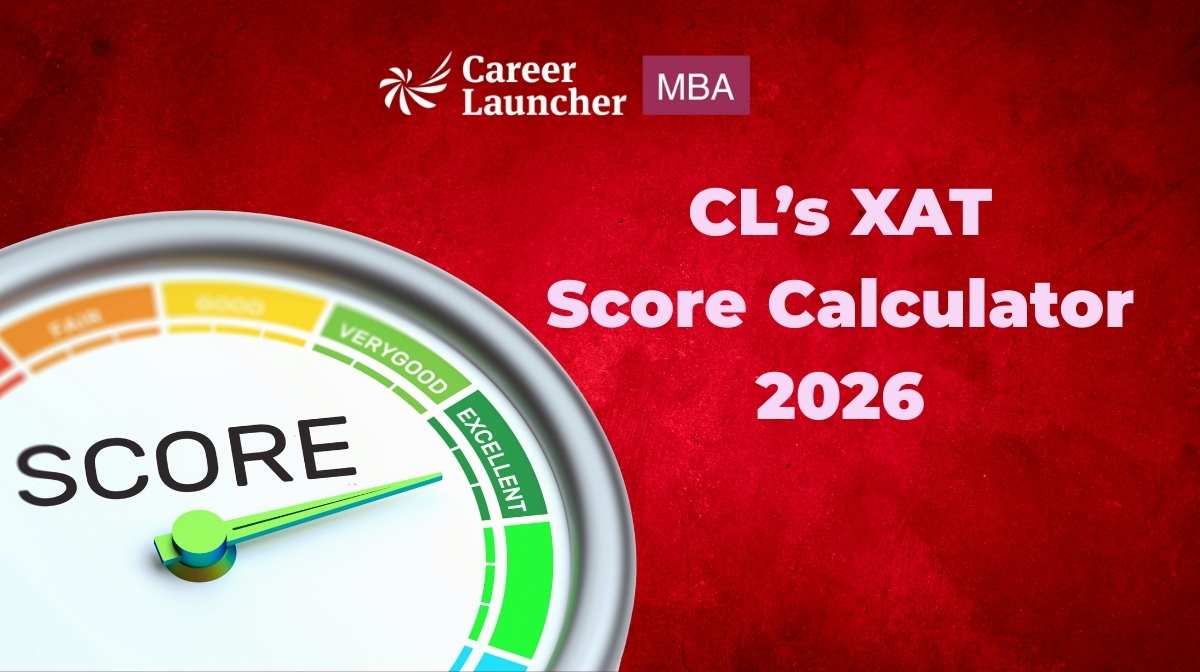CAT DILR syllabus 2026: The Data Interpretation & Logical Reasoning section of the CAT syllabus is where quick thinking meets time constraints. DILR, unlike other parts, does not rely on theory or memorised formulas—it assesses your ability to evaluate, group, and solve problems under pressure.
If you’re preparing for CAT 2026, having a clear understanding of the CAT DILR syllabus, common question types, and how to approach them is essential.
In this blog, we break down the CAT DILR syllabus 2026, exam pattern, key topics, and give practical preparation tips that anyone can follow.
Table of Contents
CAT 2026 DILR Syllabus
The DILR section, or Data Interpretation and Logical Reasoning, of the CAT exam. It is the second section of the CAT exam (after VARC), and it is designed to test:
- Your problem-solving ability
- Logical thinking and reasoning
- Data handling and analysis
Each question is part of a set, and candidates need to solve 4–5 questions based on a single case or data set.
Related Article – How to Fill CAT Application Form 2026
CAT DILR Exam Pattern 2026 (Expected)
The CAT exam pattern 2026 for the DILR section is expected to be similar to that of the previous year. Candidates can check the table below to understand paper pattern for CAT DILR.
|
Component |
Details |
|
Total Questions |
22 |
| Sectional Time Limit |
40 minutes |
|
Number of Sets |
4 sets (5-6 questions per set) |
| Type of Questions |
MCQ & TITA |
|
CAT Marking Scheme |
+3 for correct, -1 for wrong (MCQs only) |
| DILR Difficulty Level |
Moderate – High |
Related Article – CAT 2026 Registration Process
IIM CAT DILR Syllabus 2026: Important Topics & Weightage
There is no official CAT LRDI syllabus, but based on past year CAT question papers, the section broadly covers:
CAT Data Interpretation Syllabus
CAT data interpretation section tests candidates’ knowledge of analysing and interpreting data presented in various forms, like tables, charts, and graphs. Topics covered under the Data Interpretation part of the CAT DILR syllabus include:
- Bar Graphs
- Line Charts
- Pie Charts
- Tables
- Mixed Graphs (combo of chart + table)
- Caselets (data in paragraph form)
- Data Sufficiency
- Venn Diagrams
- Percentage & Ratio-based analysis
Many of the questions in the CAT DILR section demand a solid comprehension of quantitative aptitude concepts, including percentages, averages, and ratios. These principles are frequently required for computations used to solve problems. Some of them are listed below:
- Growth/decline
- Comparisons across categories
- Averages/medians/totals
- Inferences based on conditions
CAT Logical Reasoning Syllabus
LR questions test your ability to understand logical connections, deduce conclusions, and analyse scenarios under constraints. Topics covered under the Logical Reasoning part of CAT LRDI syllabus include:
|
Topic |
Question Types |
| Arrangements |
Linear, Circular, Matrix, Complex |
|
Team Formation/Grouping |
Based on conditions and constraints |
| Puzzles |
Multi-variable, constraint-based |
|
Venn Diagrams |
Logical overlaps, data-based grouping |
| Games and Tournaments |
Points-based competitions |
Note: These topics are integrated in caselets. You won’t get direct standalone questions.
CAT 2026 DILR Syllabus – Question Distribution (Past Trends)
|
Year |
Number of Sets | Total Questions | MCQs | TITA |
| 2024 | 5 | 22 | 12 |
10 |
|
2023 |
4 | 20 | 14 | 6 |
| 2022 | 4 | 20 | 12 |
8 |
Each set is usually either Data-heavy (DI) or Logic-heavy (LR). In many cases, CAT has mixed sets involving both.
Related Article – CAT Notification 2026
What Makes CAT DILR Challenging?
- No fixed topic list
- Lengthy caselets that require deep focus
- Unpredictable set difficulty—some are easy, others are highly complex
- Time management is crucial, as 1 difficult set can eat up 20+ minutes
That’s why the selection of the right sets is as important as solving them correctly.
How to Prepare for the CAT DILR Section?
- Understand Set Types: Begin by solving basic DI and LR sets to become familiar with the types of problems presented.
- Practice from Previous Year CAT DILR Papers: Solve at least 30–40 sets from the past 5 years to identify recurring patterns.
- Build a Set Selection Strategy: Learn to judge which sets are worth attempting and which to skip.
- Mix of MCQs & TITA: Practice both formats to improve speed and reduce dependency on options.
- Sectional Tests: Time-bound free CAT mock tests help simulate exam pressure and improve speed.
Also Read: CAT DILR Preparation Guide
CAT DILR Preparation Tips 2026
- Start with easier sets and build momentum
- Avoid ego traps—if a set takes too long, move on
- Focus on accuracy over attempts
- Analyse each mock DILR section in detail
- Maintain a DILR journal to track the types and logic used
CAT DILR Syllabus Difficulty Level: Slot-Wise Variation
CAT is conducted in multiple slots, and DILR difficulty can vary across them. Sometimes Slot 1 may have 2 easy sets, while Slot 2 has none. The key is adaptability—practicing a mix of easy, moderate, and tough sets helps build that skill.
CAT DILR Syllabus: How To Balance Practice?
|
Subject |
Focus Areas | Ideal Weekly Practice |
| DI | Speed, calculation, logic |
3–4 sets |
|
LR |
Logic structuring | 3–4 sets |
| Mixed Sets | CAT-style caselets |
4–5 sets |
Related Articles –
CAT Preparation without Coaching
Conclusion
The CAT DILR section is all about smart work—not hard memorisation. The key is to develop the ability to identify solvable sets, solve them with clarity and speed, and avoid time-wasting traps.
With consistent practice and the right guidance, DILR can become a score-booster in CAT 2026.
Prepare for CAT 2026 with Career Launcher’s programs. Check Out – CAT Online Coaching | CAT Test Series
Frequently Asked Questions
Q: Is there a fixed syllabus for DILR in CAT?
A: No, but past papers help identify common topics and patterns.
Q: How many sets should I attempt in CAT DILR?
A: Aim to solve 2–3 high-accuracy sets in the exam, depending on difficulty.
Q: Are calculators allowed in DILR?
A: Yes, an on-screen calculator is provided. But avoid overusing it for basic calculations.
Q: How is DILR different from Quant?
A: DILR is logic and data-driven, whereas Quant requires math-based concept knowledge.















